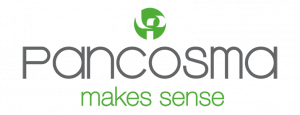Supplementation of a low level of organic zinc in finishing pigs
Supplementation of a low level of organic zinc in finishing pigs decreased lipid peroxidation in their meat.
Abstract
By Khelil-Arfa, H., Natalello, A. Priolo, A., Biondi, L., Lanza,, M., Zoon, M.V., Blanchard, A., Menci, R., Luciano, G.
Zinc supplementation in finishing pigs affects nutrients repartitions due to its essentiality on protein, carbohydrate, lipid metabolism and as a component of metalloenzymes such as digestive enzymes and insulin. Additionally, Zinc is an essential compound of CuZn-super-oxide-dismutase (SOD), an antioxidant enzyme that can help to control lipid peroxidation and improve meat quality This study aimed to determine the effects of dietary supplementation of two levels of zinc chelate of glycine hydrate (ZnGly) on lipid peroxidation in meat of finishing pigs. Thirty finishing crossbred pigs (61.0 ± 4.02 kg body weight; 120-days old) were individually housed and assigned to 3 dietary treatments. Pigs were fed ad libitum for 56 days until slaughter a basal diet (Control) or a basal diet supplemented with 45 mg/kg (Zn45) or 100 mg/kg (Zn100) of ZnGly. Lipid peroxidation was evaluated by measuring the 2-thiobarbituric acid reactive substances (TBARS) in fresh and cooked meat during 6 and 4 days of refrigerated storage, respectively. One-way ANOVA was used to test the effect of diet on animal performance, whereas a mixed model was applied to evaluate oxidative stability. ZnGly supplementation did not affect body weight and feed conversion ratio. Zn45 reduced water loss during cooling of the carcass (3.70% vs. 4.85%, P=0.001) and tended to increase the cold carcass yield (+1.4%, P=0.094), compared to Control. Zn100 reduced water loss during cooling of the carcass (3.59% vs. 4.85%, P<0.001) and during cooking of the meat (26.9% vs. 29.7%, P=0.029), compared to Control. Lipid peroxidation in cooked meat was lower after 4 days in Zn45 (1.58 vs. 1.93 mg of malondialdehyde/kg of meat, P=0.018), compared to Control. Our results showed that ZnGly supplementation level of 45 mg/kg in finishing pigs was able to reduce water loss and lipid peroxidation of meat after a strong oxidative challenges such us cooking.
About the presenter
Mieke Zoon, Msc. Product Manager, Pancosma
Mieke Zoon grew up in a rural area where her free time was spent with horses. Surrounded by animal and crop production the curiosity towards food and nutrition grew over the years. The interests for both animals and nutrition were combined in a BSc in Animal Sciences and a MSc in Animal Nutrition from Wageningen University, The Netherlands. Since then she worked 5 years as a swine nutritionist with the focus on piglet nutrition before joining Pancosma to support the organic trace mineral range in the global role of Product Manager Minerals




